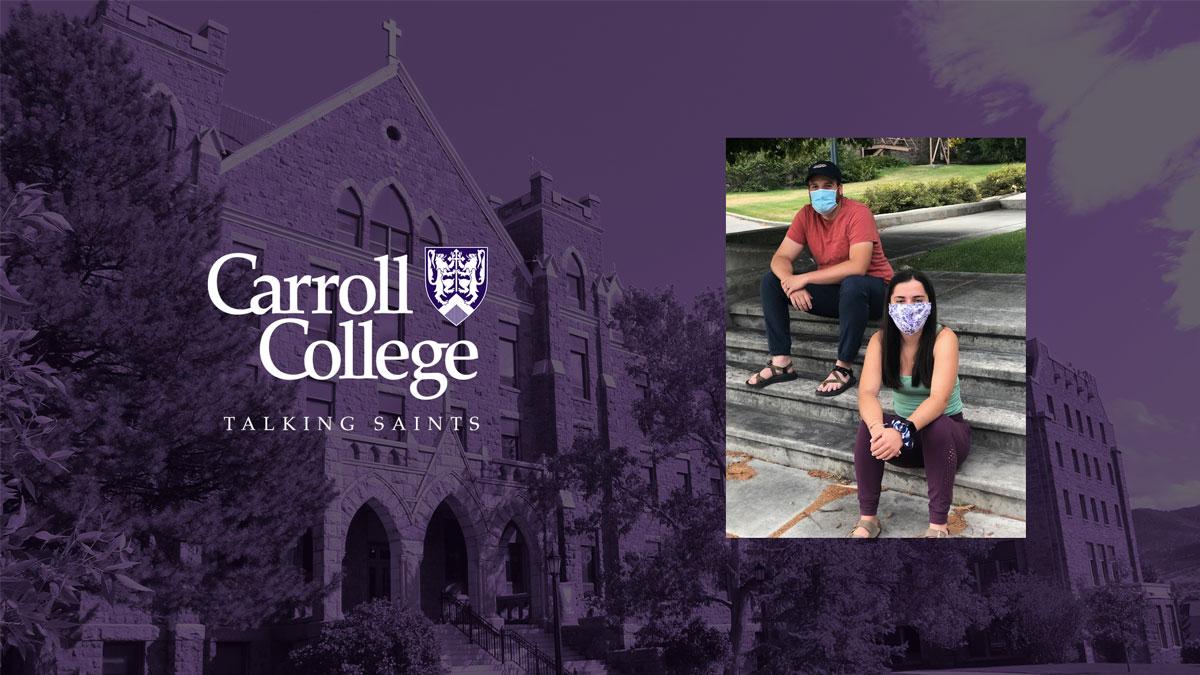HELENA – The Carroll College Talking Saints hosted an online educational Teaching Tournament for British Parliamentary (BP) debate on September 13-14.
And everybody came!
“This event historically has attracted about 20 teams from half a dozen schools from neighboring states,” said Talking Saints coach Brent Northup. “But because it was online, we ended up with 75 teams from 12 states including New England Law, Vanderbilt, Mississippi, Loyola of Chicago, and Alaska.”
Northup says the fact that the tournament focused on novices and on training drew programs that appreciated that focus.
“Our Teaching Tournament motto – education before competition and teaching before trophies – resonated with a lot of coaches,” said Northup. “We began with a forum Friday night on building relationships in online debate that generated lots of talk about how to humanize online learning of all sorts. Then, on Saturday morning, we had four hours of workshops. I taught the novices in ‘Brent for Beginners’ and asked two fine coaches to run advanced workshops for others.”
Those workshops were popular, each drawing more than 40 students.
The weekend ended with a four-round tournament, with emphasis on educational critiques afterwards to encourage beginners and offer suggestions on how to improve.
“The tournament was so large that many of our juniors and seniors helped run the event and helped judge instead of competing. More than a dozen alumni joined us online to judge as well.”
The younger Talking Saints did compete, and two of them won awards. Katie Payne, a first-year student from Helena, was named 4th best speaker, and Emma Peterson of Belgrade was named the 8th best among the 80 novices.
“Katie and her partner Anna Brown of Olympia, Washington, were a single ballot from reaching semi-finals, and other teams did well, too,” said Northup. “I was very proud of how well our new team members performed.”
For awards, the Talking Saints are sending winning teams pieces of Montana.
“We are mailing different types of polished Montana forged stones,” said Northup. “We told them because they couldn’t come to Montana this year, we would send a piece of Montana to them. They seemed to love the idea.”
Northup says that many coaches expressed appreciation that learning, not winning, was the focus. Some programs came for the workshops, but did not stay for the tournament.
“I’m not alone in believing that speech and debate should be about building community and educating people,” said Northup. “When debaters slip into win-at-all-costs mode, the activity actually can become harmful. The goal is to encourage bright students to respect opponents and congratulate them afterwards. And the Carroll students are historically admired for their good sportsmanship and their positive spirit. That’s what it’s all about.”
Northup thinks some schools entered Carroll’s Teaching Tournament trusting that the weekend would be a warm place for new debaters to wade into forensics waters for the first time.
“After the weekend ended, a student from Rutgers in New York wrote me to say how much he appreciated the weekend with us,” said Northup. “He had come alone and we found him a partner. He said he felt like he was leaving family and that he loved meeting and talking to the Carroll debaters. It was the sweetest of notes and reinforced my belief that debate can provide opportunities for compassion and friendship. I believe Carroll is the perfect place to reinforce the possibility of kindness amidst a competitive world.”

